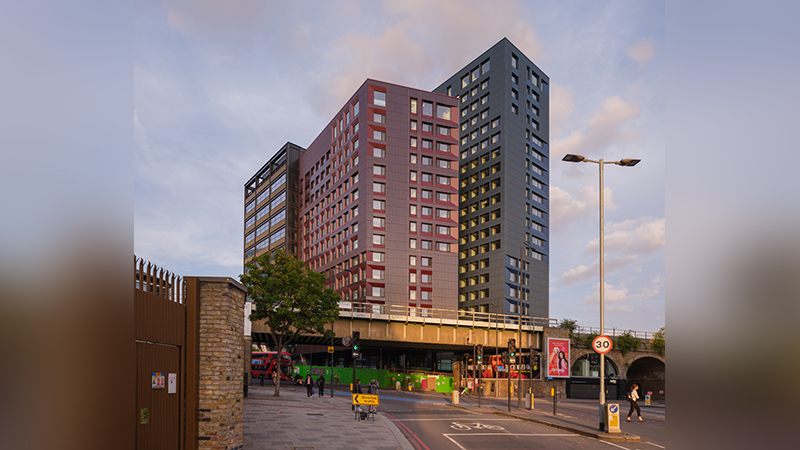Assured tenancy — Construction — Grounds for possession — Appellant’s boyfriend convicted of arrestable offence — Respondent obtaining order for possession of house held by appellant under assured tenancy — Whether terms of lease restricting statutory grounds for possession excluding commission of offence by person other than tenant — Appeal allowed
The appellant tenant held an assured tenancy of a house in Pollards Hill, Mitcham, where she lived with her boyfriend M. The respondent was her landlord. Clause 4 of the lease set out the rights and obligations of an assured tenant under the Housing Act 1988, and stated that “The following are the only grounds… on which [the landlord] will… seek to recover possession”. The listed grounds were cross-referenced to their equivalents in Schedule 2 to the Act. Ground 4.7 in the lease, cross-referenced to ground 14 in Schedule 2, was that “you or anyone living in the premises is guilty of… nuisance… or you have been convicted of using the premises for… an arrestable offence”. The wording of ground 14 differed slightly, in that the second limb referred to a conviction of either the tenant or a person residing in the house.
M was subsequently convicted of possession of drugs with intent to supply. The landlord sought possession of the house on, inter alia, ground 14, on the basis of M’s conviction. A district judge held that the word “you” in the second limb of clause 4.7 had to be construed as meaning “you or anyone else living in the premises”, bringing it into line with the statutory ground 14. The judge accordingly made a suspended order for possession.
The tenant appealed. She contended that the meaning of clause 4.7 was plain, that the difference between the wording of clause 4.7 and that of ground 14 was to be given effect, and that, accordingly, clause 4.7 did not cover offences committed by anyone other than the tenant.
The landlord contended that clause 4, viewed as a whole, had clearly been intended only to describe, not to alter, the position under the Act, and that clause 4.7 had been intended only to summarise the effect of ground 14. It further submitted that any ambiguity was to be resolved so as to make commercial sense, and that there was no commercial sense in giving up a valuable right of possession conferred by the Act.
Held: The appeal was allowed.
The language of clause 4.7 was simple and straightforward, and indicated that only an arrestable offence committed by the tenant herself would suffice as a ground for possession. The inclusion of the word “you” in the second limb of clause 4.7 was wholly unnecessary if that limb was to apply to the same people mentioned in the first. Its inclusion could only have had the effect of limiting the scope of the second limb. Elsewhere in the lease, the word “you” was used to refer specifically to the tenant, and could not be taken to mean something else in clause 4.7. The lease was a document drawn up by the landlord for use by its tenants, and those tenants were entitled to understand from it what their rights were. In stating that the listed grounds for possession were the only grounds that would be relied upon, the lease was setting out the contractual rights of the parties, not simply describing the statutory position. Anyone reading clause 4.7 would understand it as restricting the landlord’s rights under the Act. Further, it could not be said that there was no commercial sense in such a restriction. Evicting a tenant for the misconduct of another could be considered a harsh measure, and the landlord might well have taken the view that the statutory ground 14 was wider than necessary.
John McDonnell QC and Timothy Sisley (instructed by Goldkorn Mathias) appeared for the apppellant; Anthony Mann QC and Shanti Mauger (instructed by Trowers & Hamlins) appeared for the respondent.
Sally Dobson, barrister










